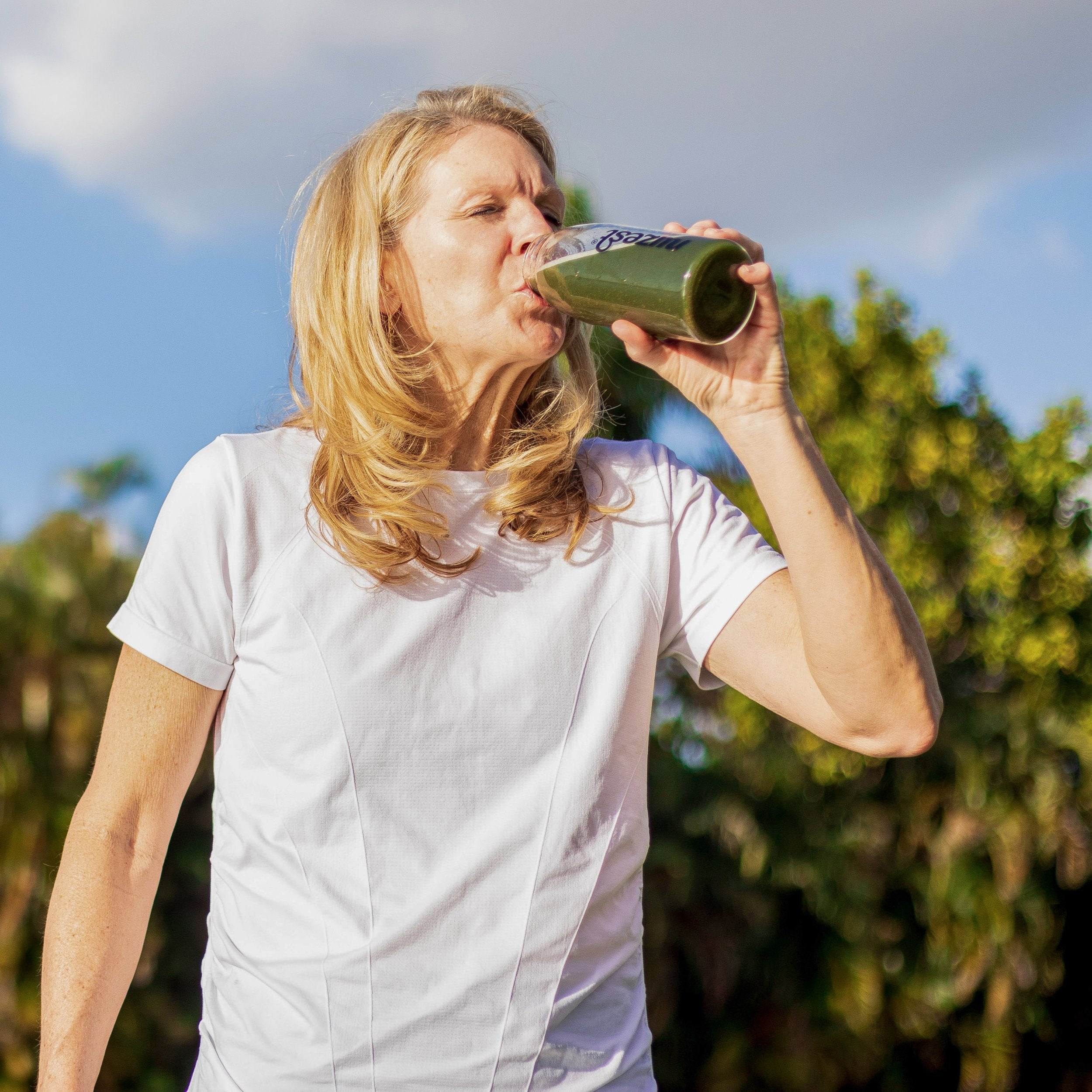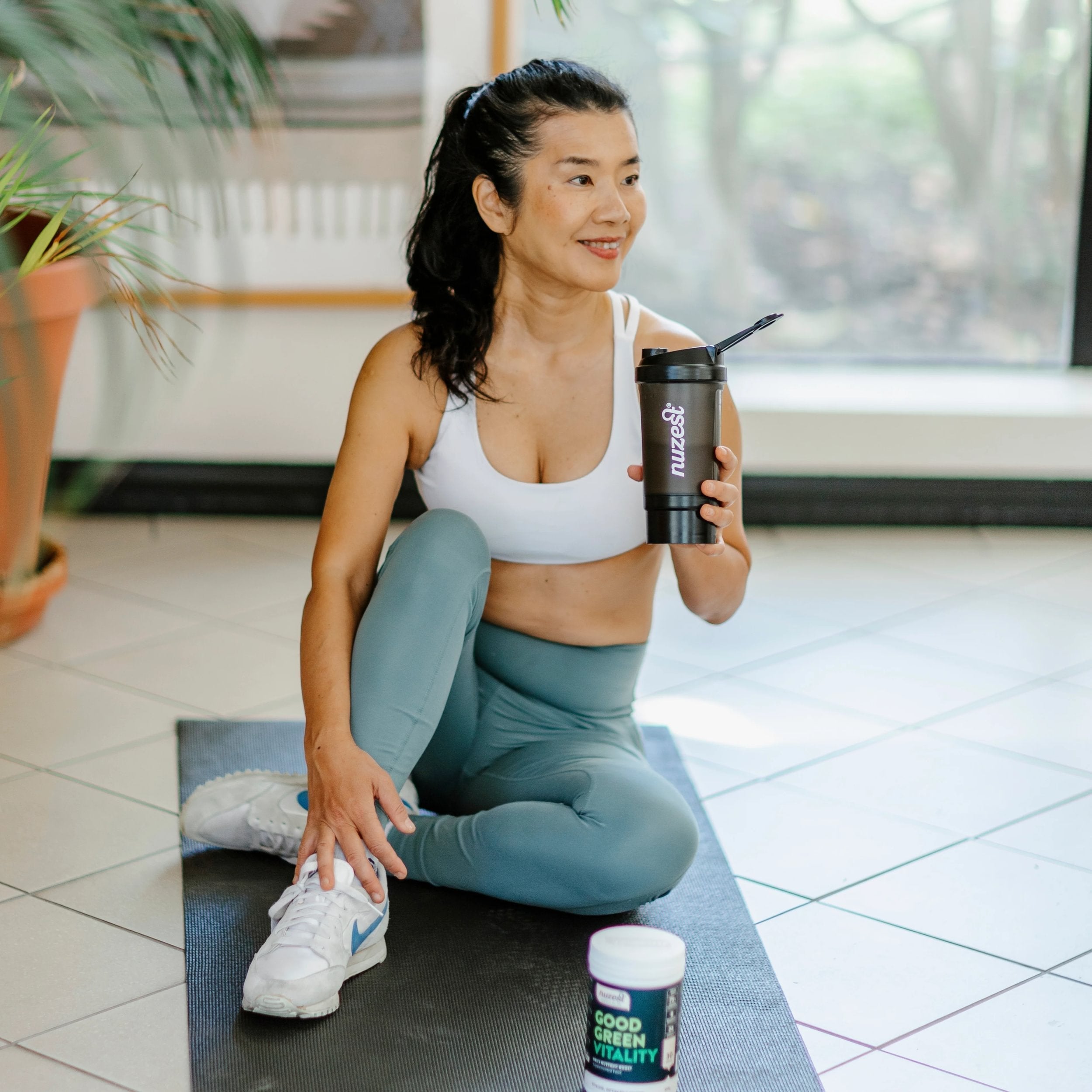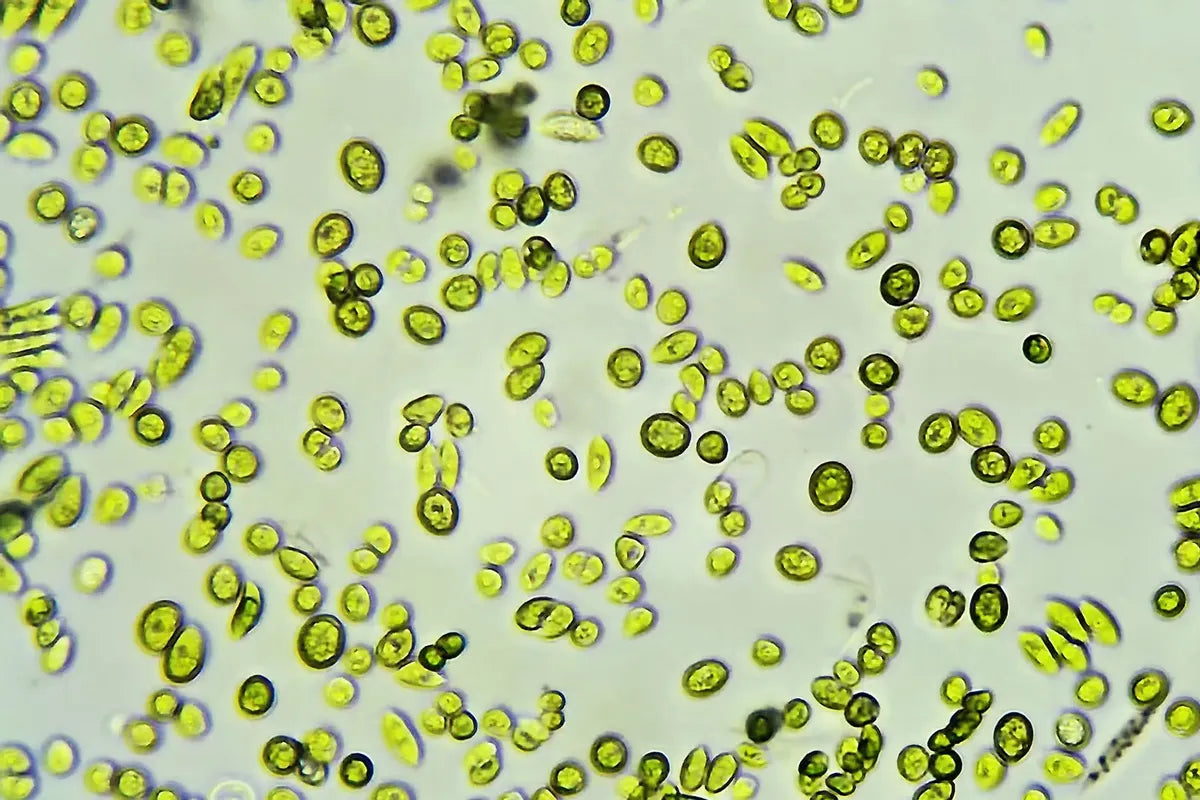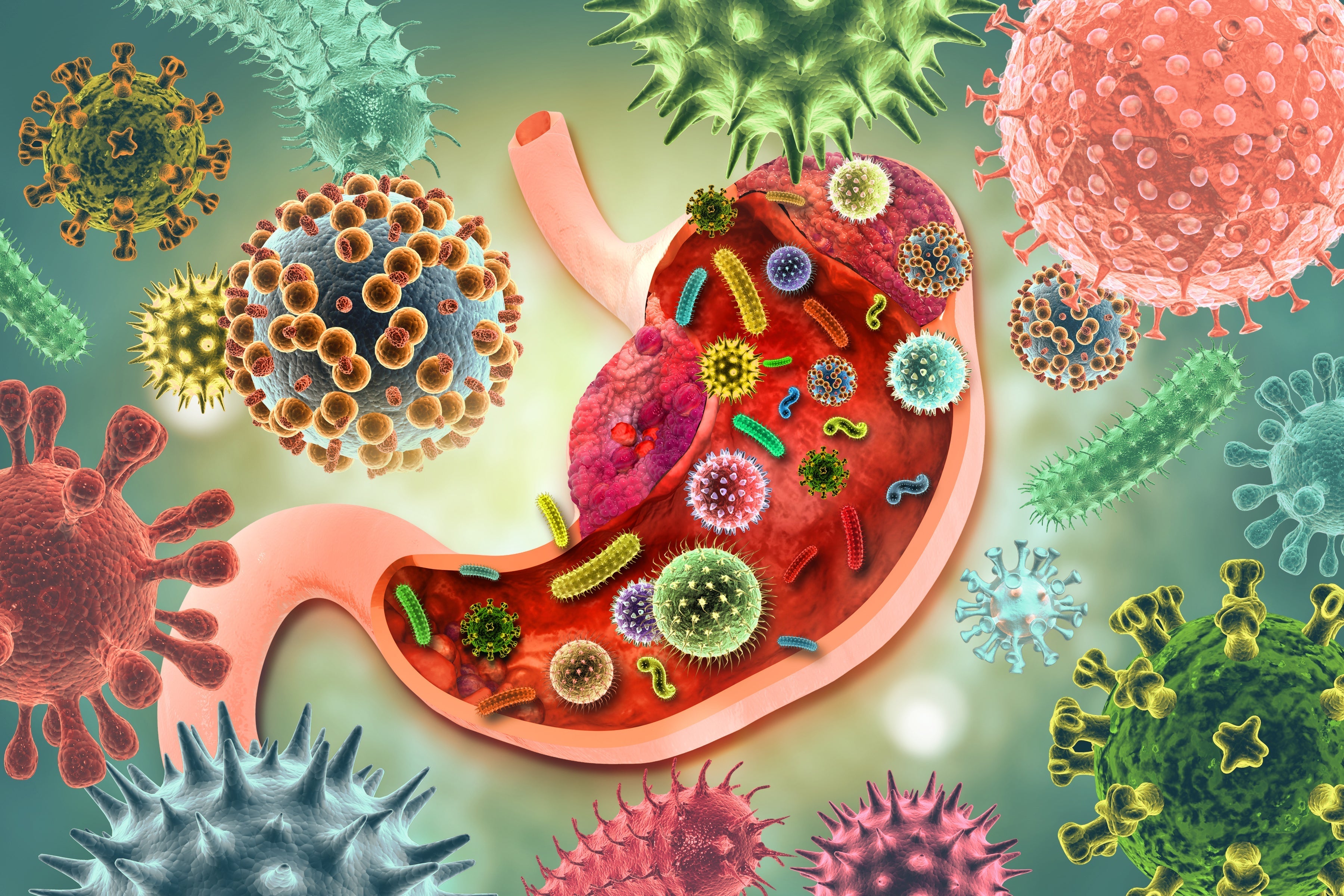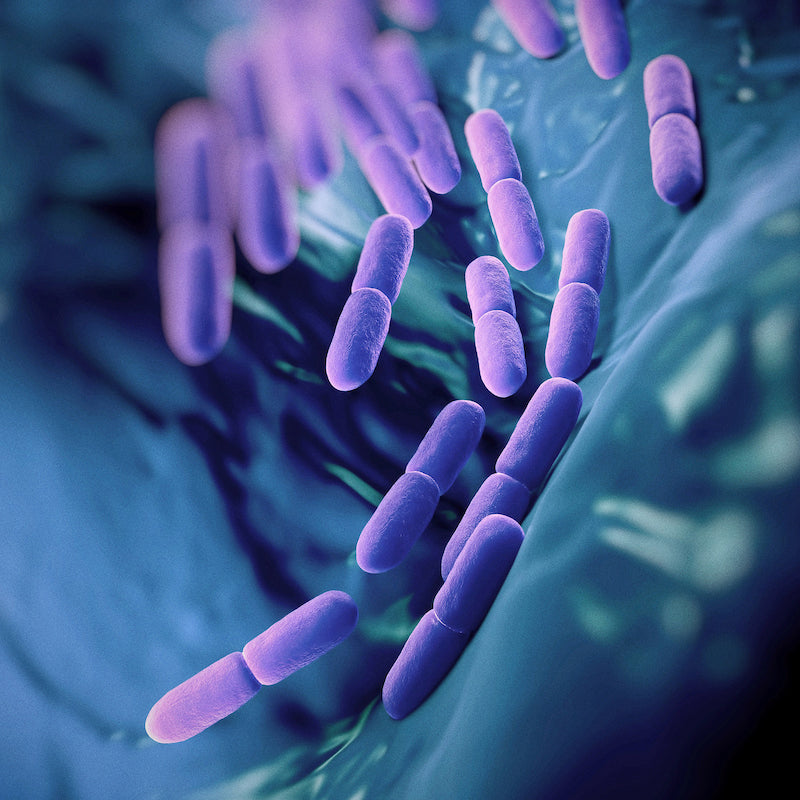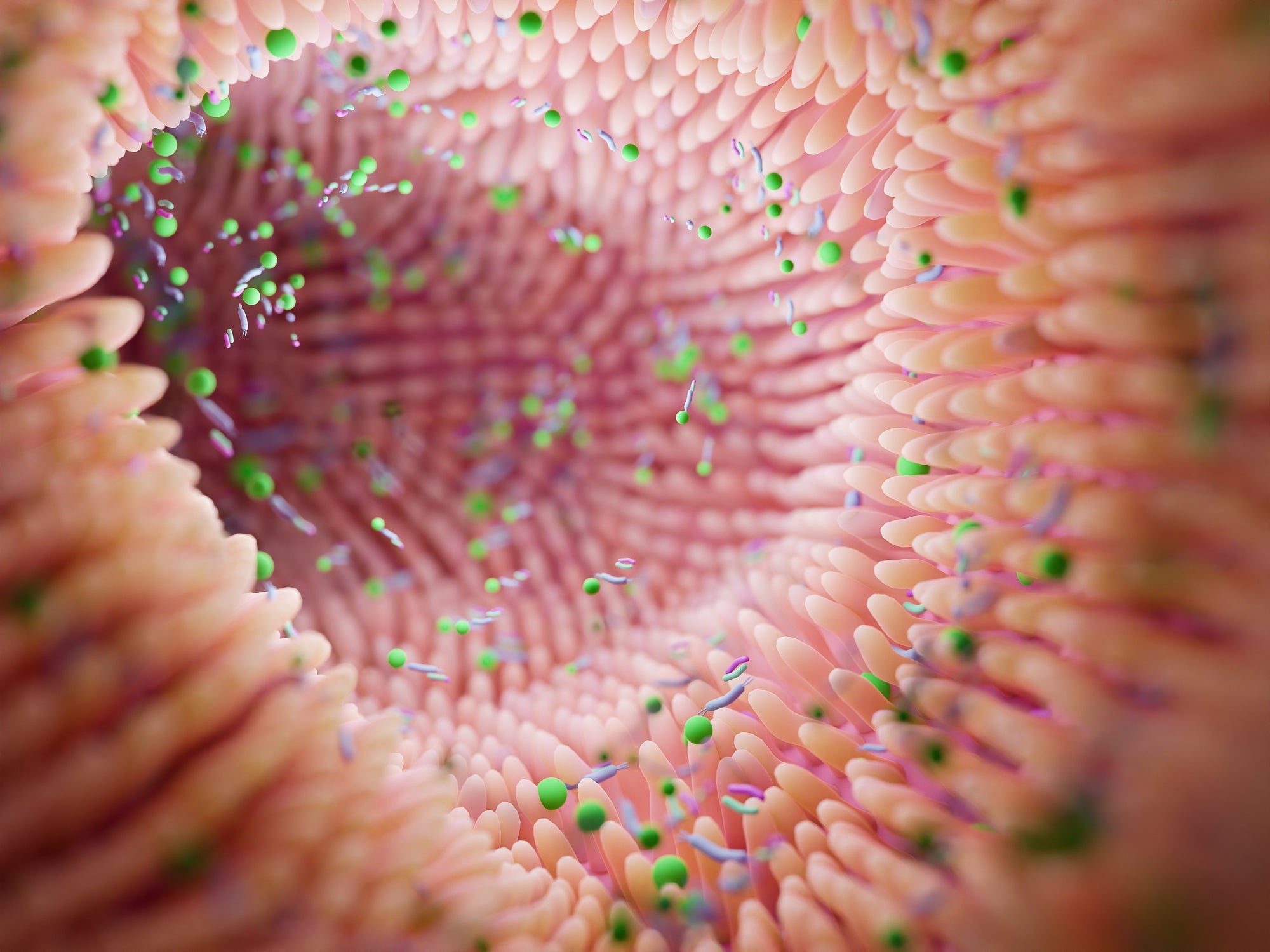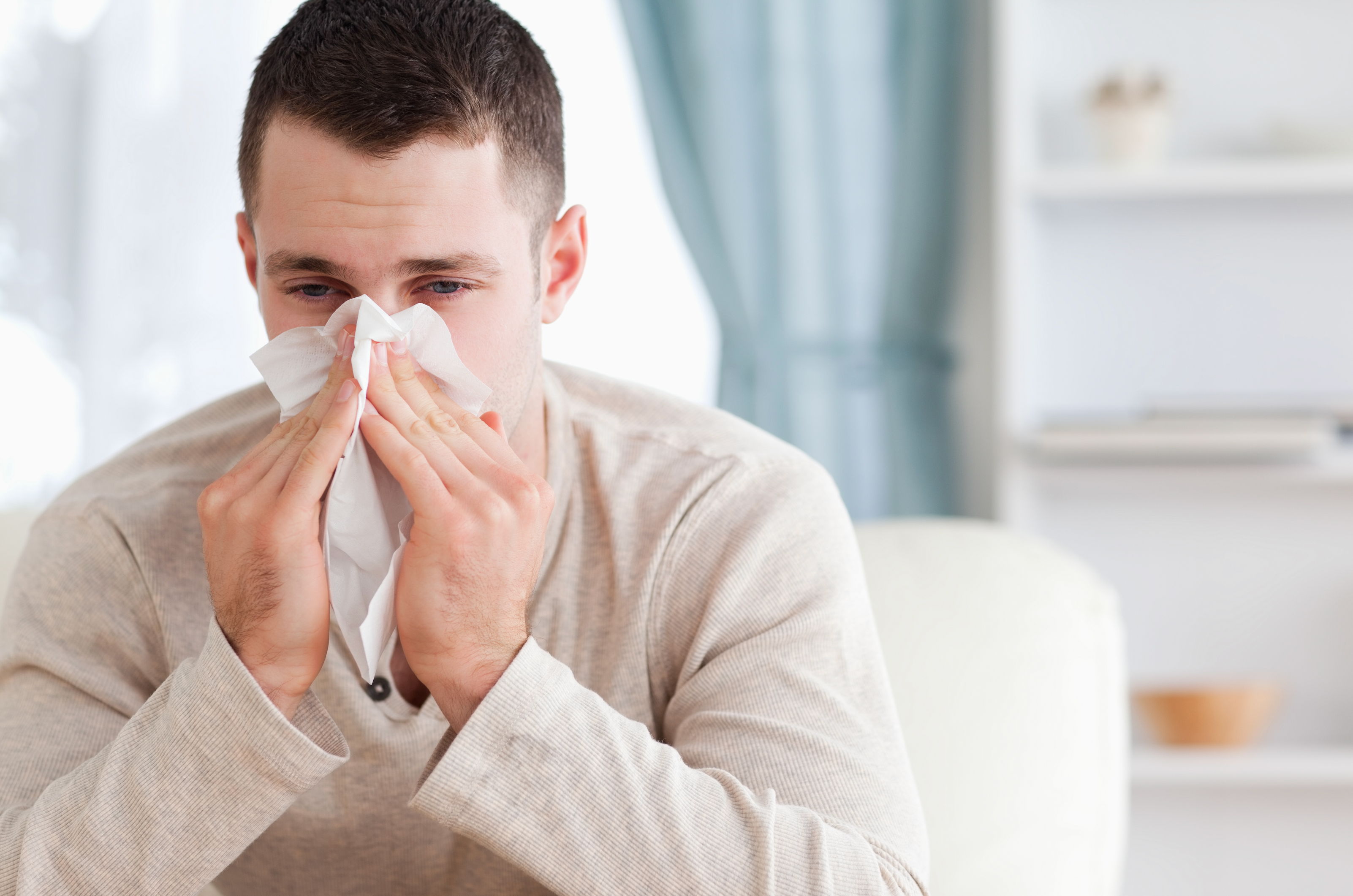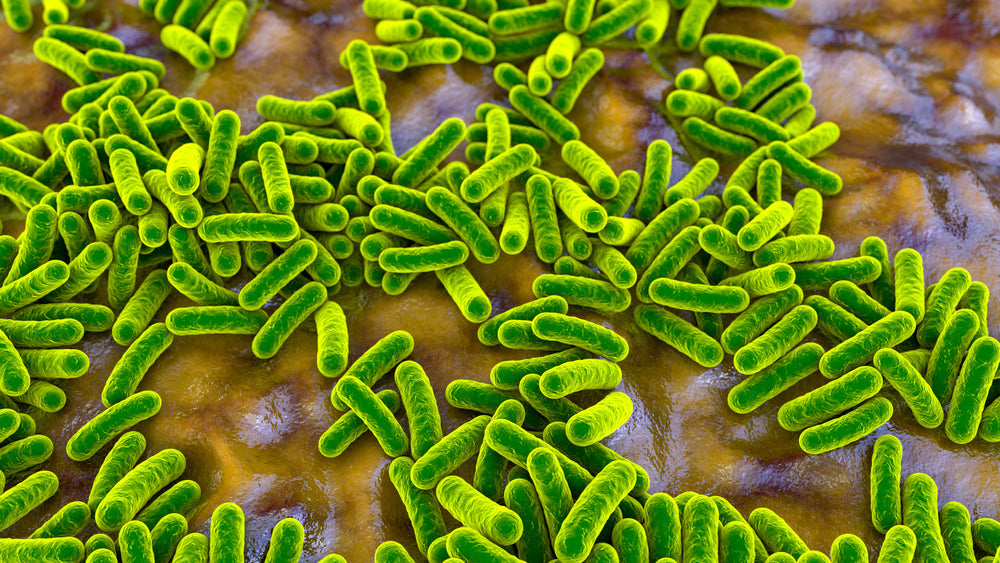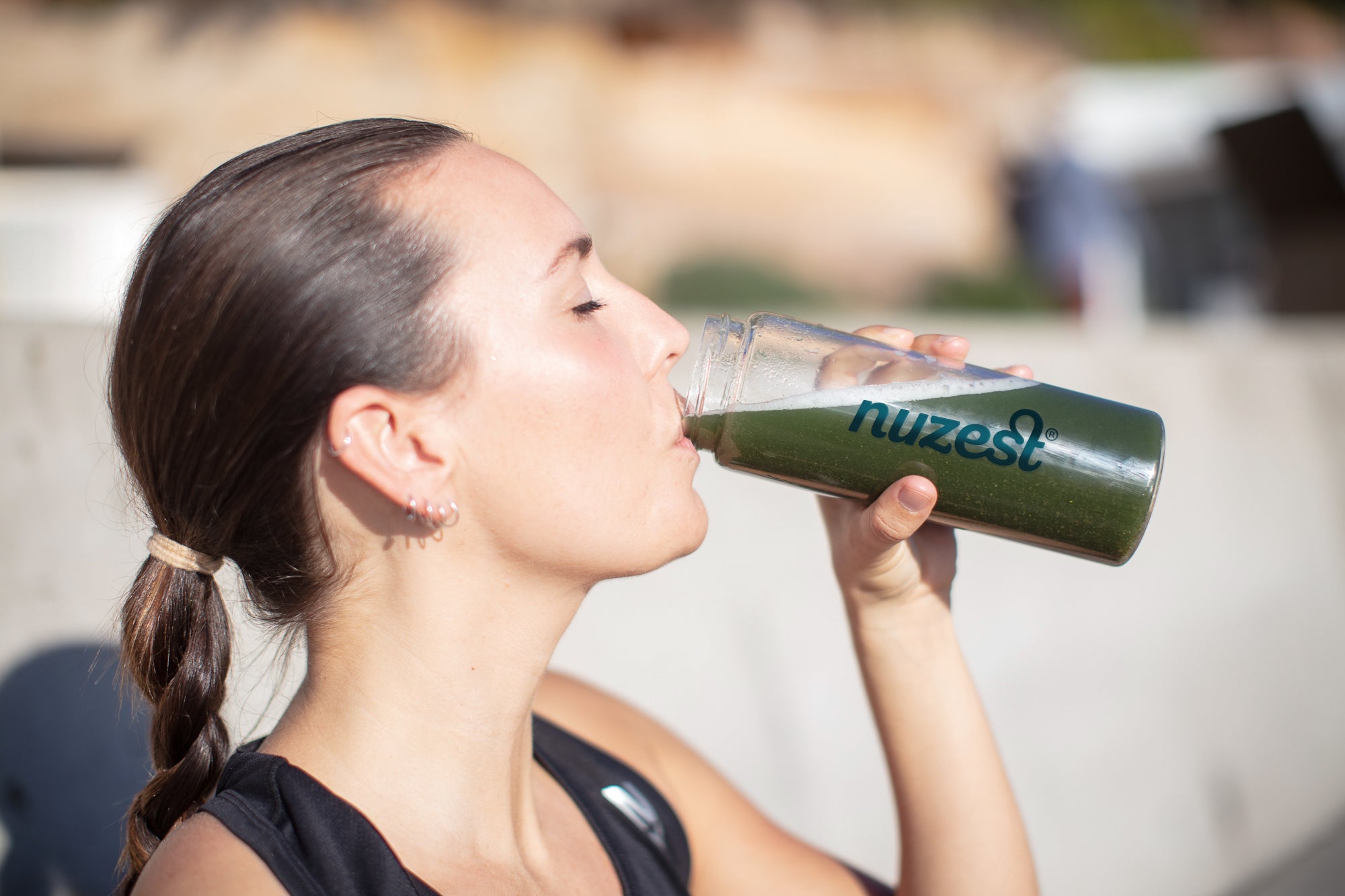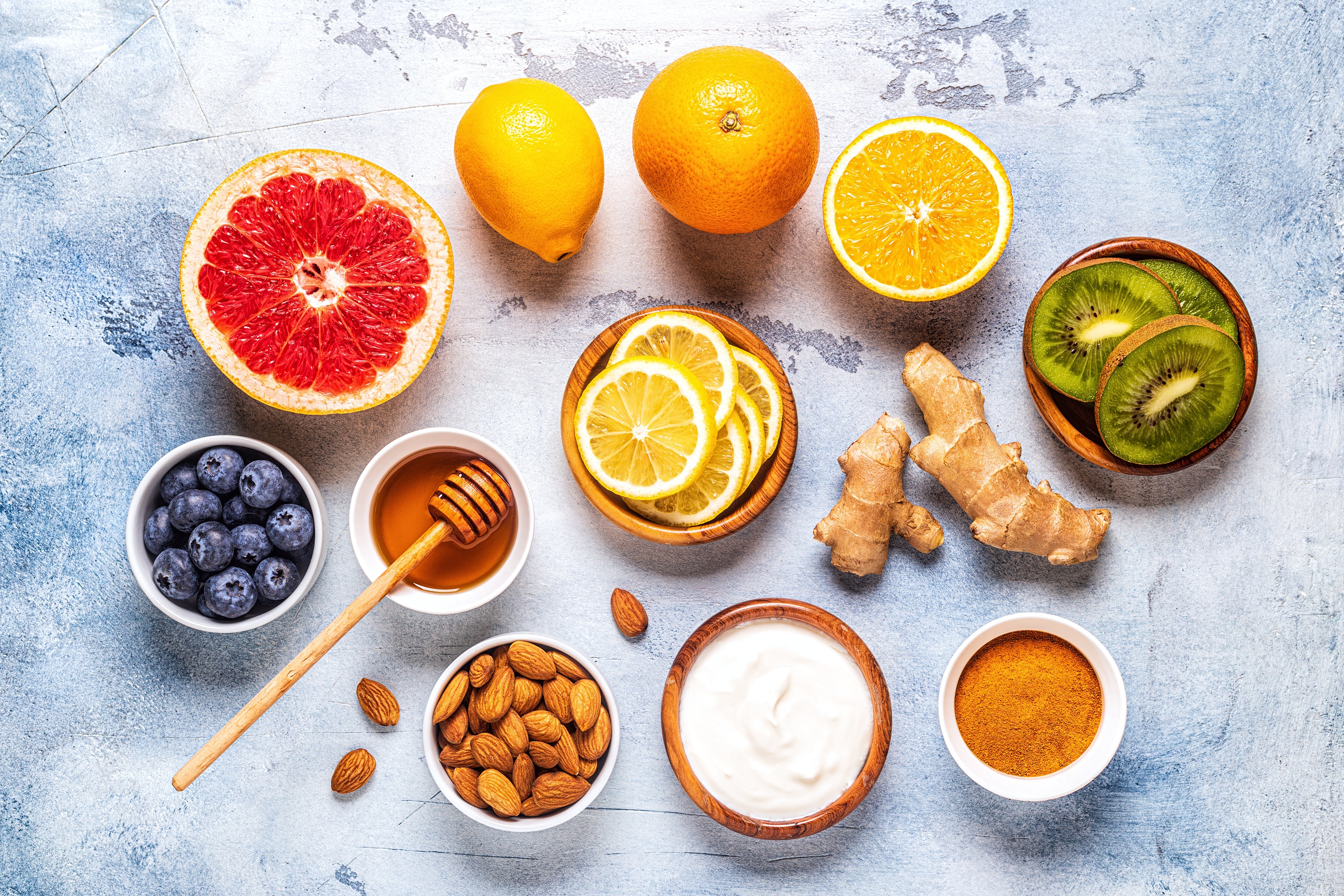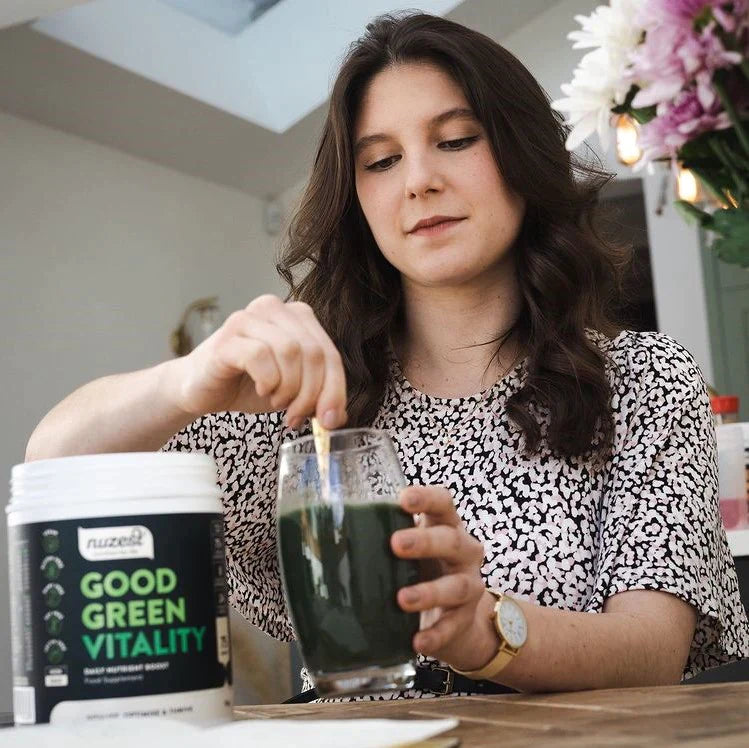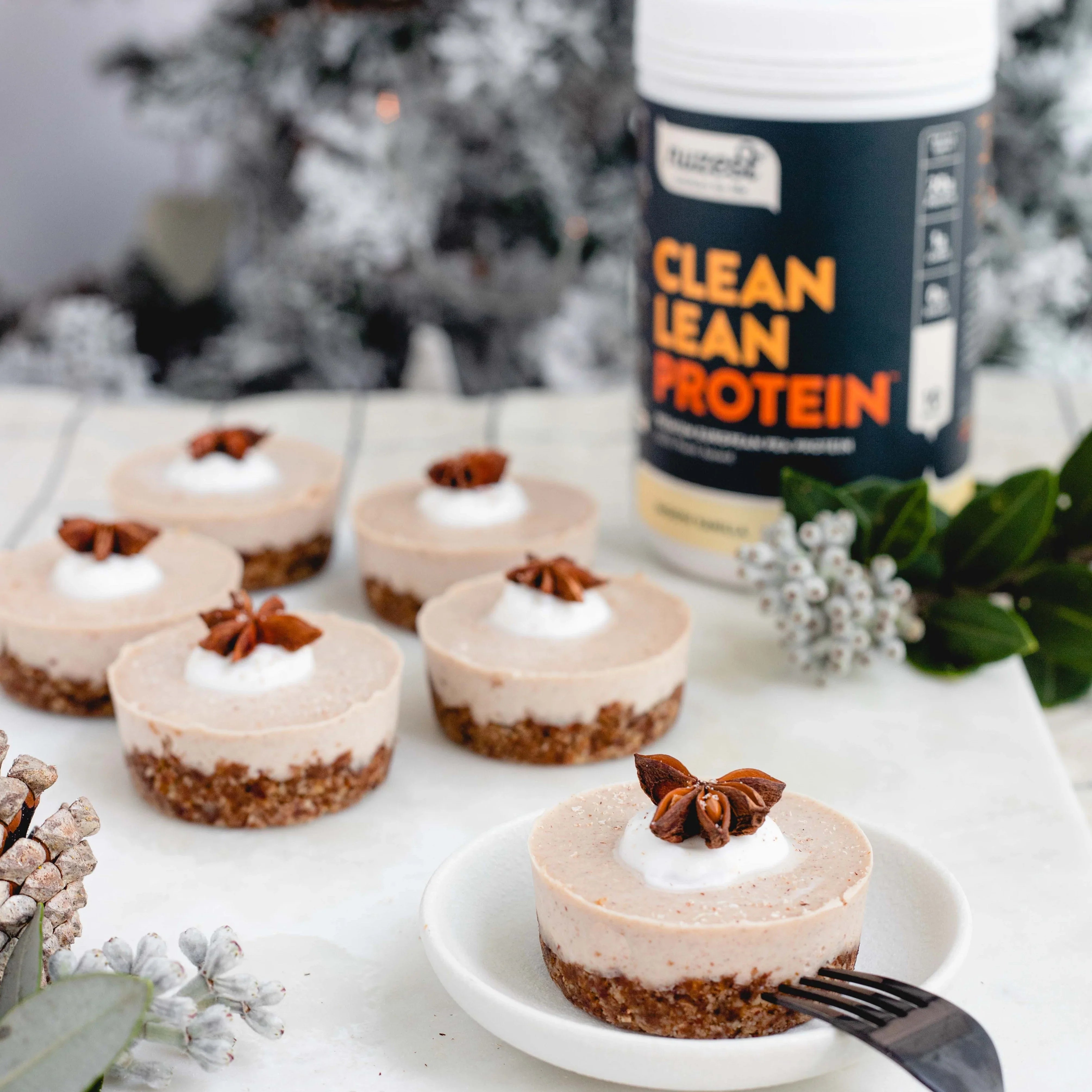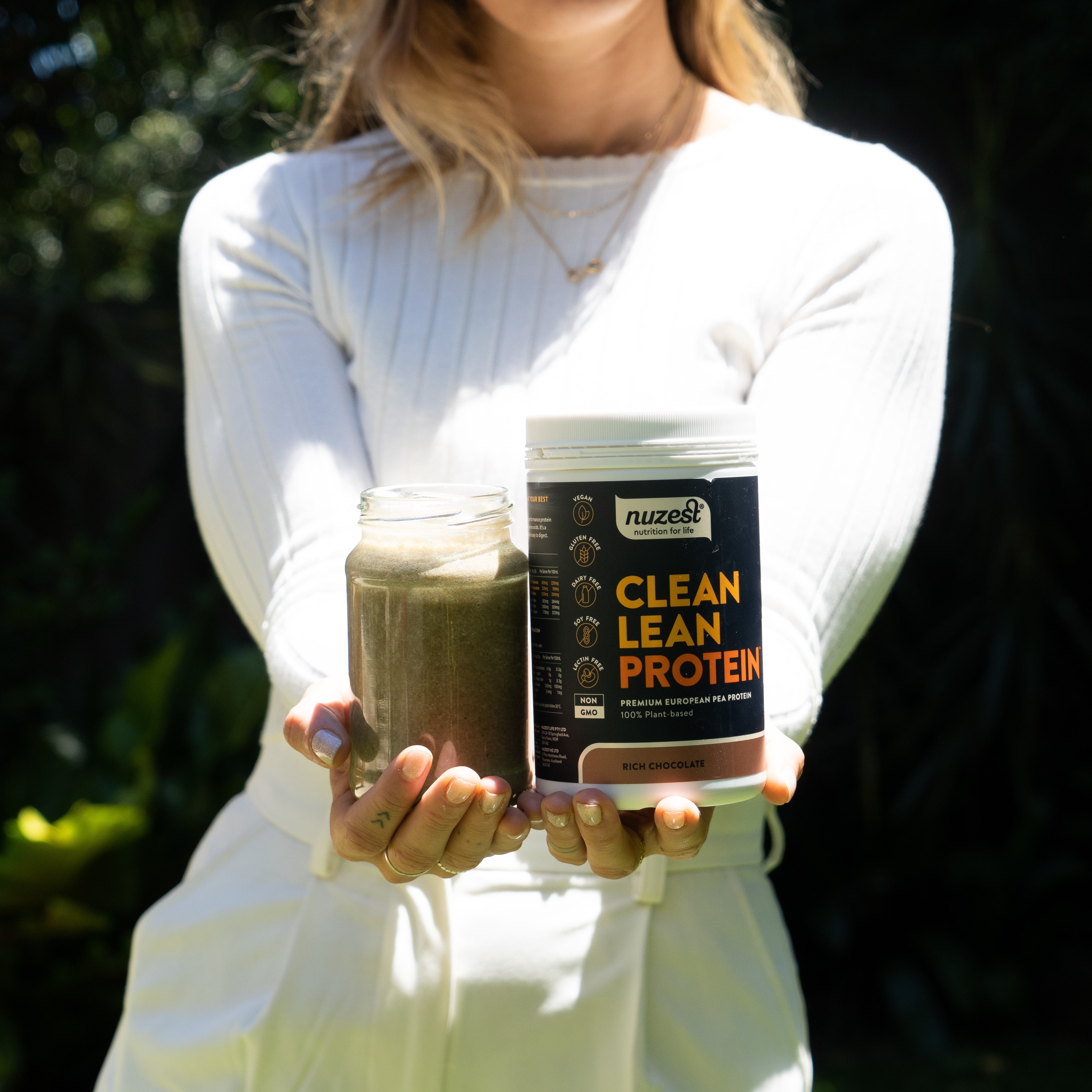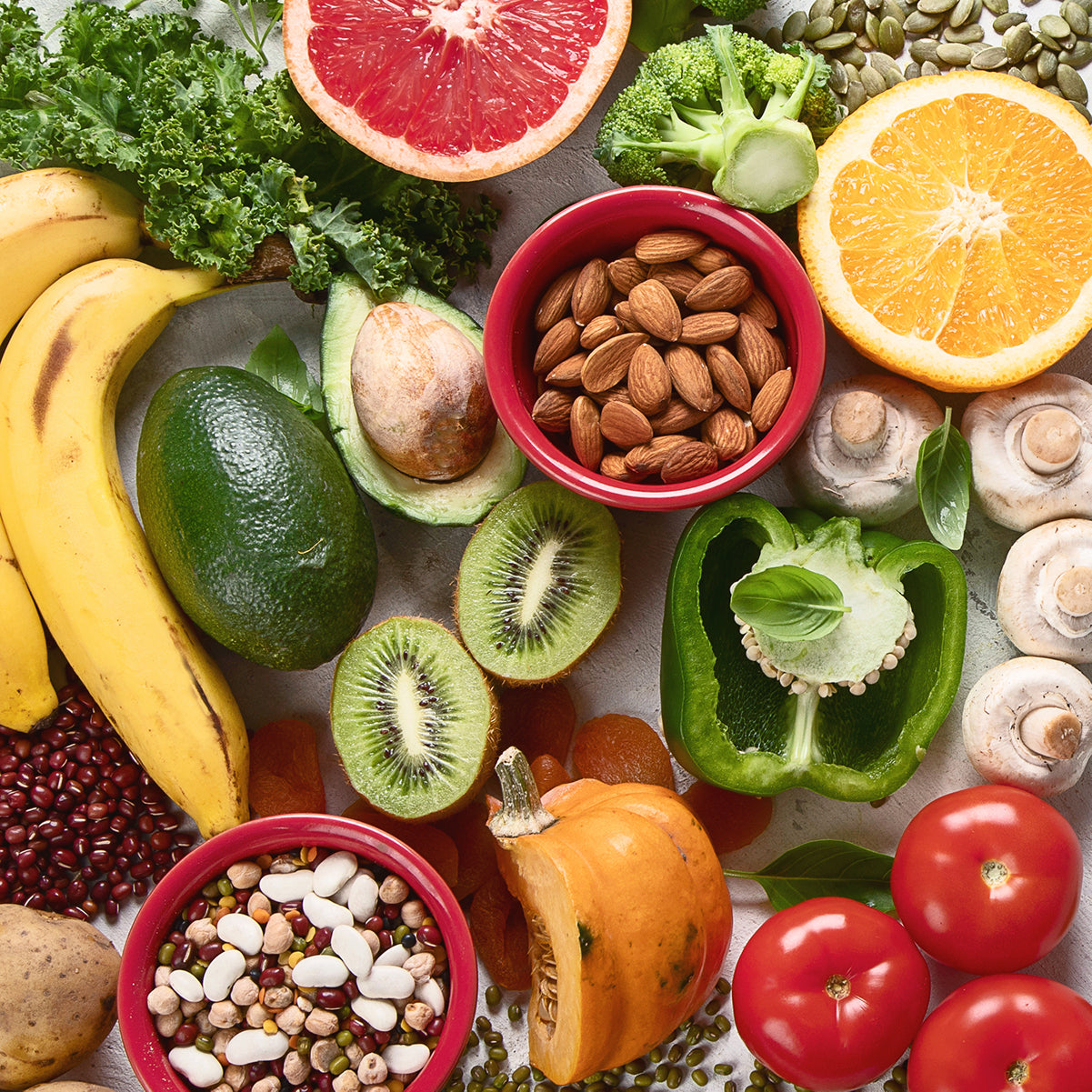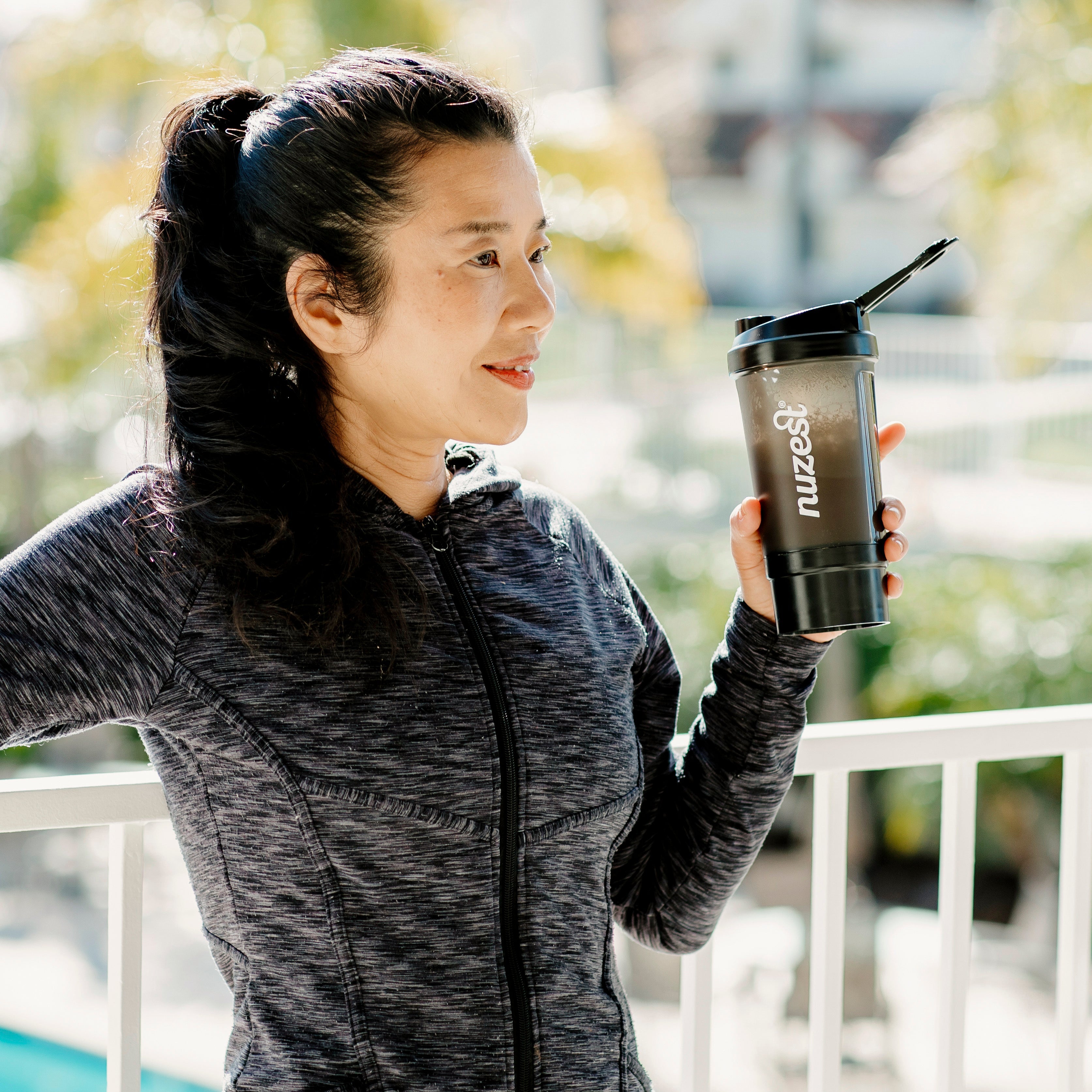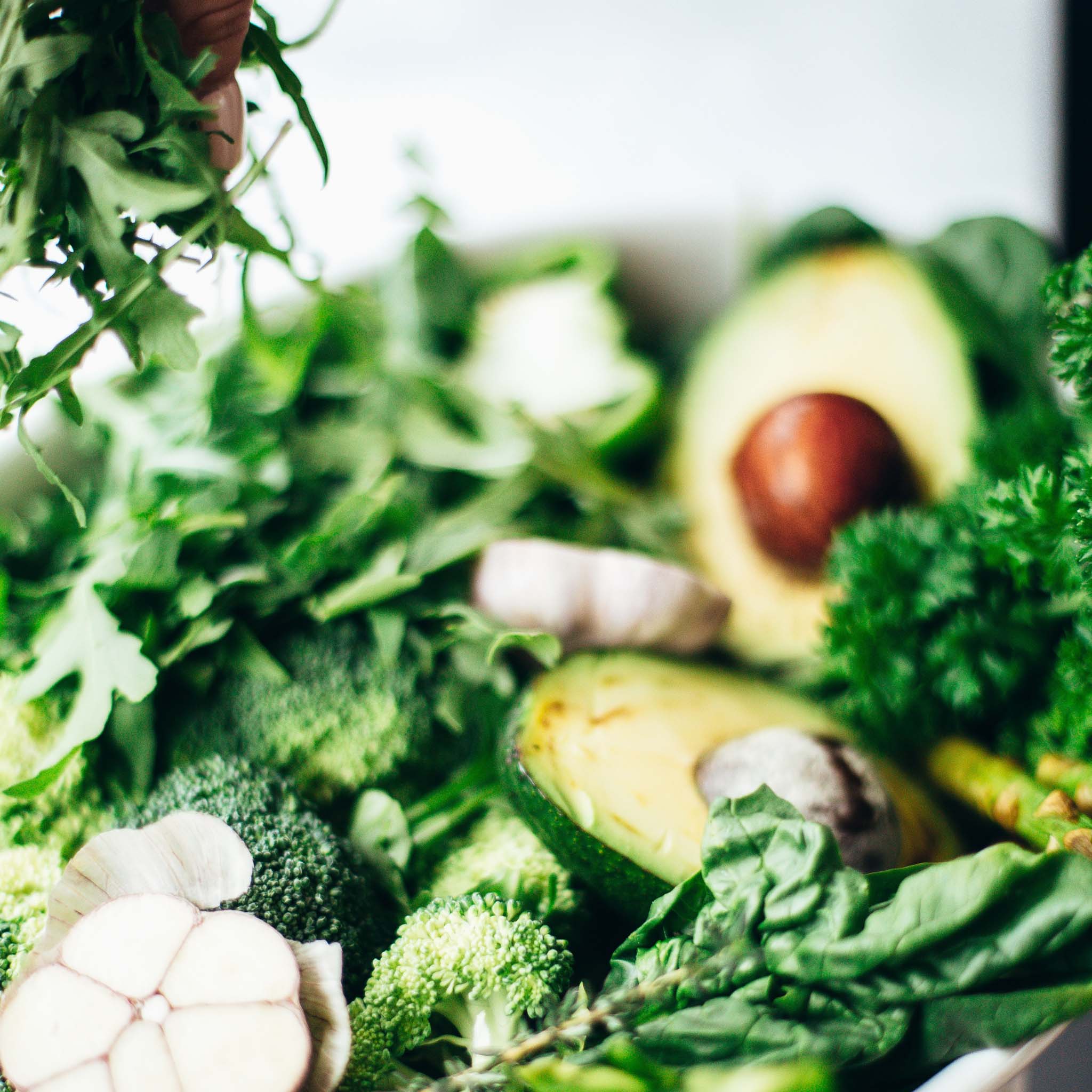TITLE: The Best Nutrients for Skin Health
AUTHOR: Amy Butler (Nutritionist)
Many nutrients have been long associated with outcomes of improved skin health, including all of its possible aspects from beauty to integrity and even ageing. Interestingly, benefit has been observed from both dietary nutrients (from food) and those applied topically, such as in moisturisers or skin treatments. Research suggests that the deeper layers of skin (the dermis) need dietary nutrients while the upper layers (the epidermis) respond better to topical treatment.1
Nutritionist Amy Butler discusses some of the best nutrients for skin health below.
Vitamin A
Vitamin A and its derivatives, including retinol, are called retinoids and are commonly found in skincare. Both the deeper and upper layers of skin contain receptors for retinoids2, meaning that vitamin A is a great nutrient to use in both dietary and topical skin nutrition. Topical retinoids have been clinically shown to improve photoaged skin by increasing smoothness and decreasing fine wrinkles and hyperpigmentation.2
Vitamin C
Vitamin C is vital for collagen synthesis and is found in both the upper and deeper layers of the skin. Ageing and exposure to UV light and pollutants, like cigarette smoke, can cause a decline in vitamin C levels in the upper layers of the skin. Vitamin C is an antioxidant; thus, it can also help to protect the skin against damage from UV light.3
Vitamin D
Vitamin D is made in the skin through exposure to sunlight. Its main function is to regulate the production of skin cells, therefore contributing to the maintenance of the skin barrier and normal wound healing.4
Vitamin E
Vitamin E actually refers to two different molecules – tocopherols and tocotrienols, both of which are found in diet in foods such as nuts and seeds. Vitamin E is also an antioxidant, meaning that it too, along with Vitamin C, helps to protect the skin against damage from UV light.5
Zinc and Selenium
Minerals are many and varied, but the two most studied for skin health are zinc and selenium. Both zinc and selenium protect the skin from damage by UV rays; zinc works topically while selenium is effective both topically and in the diet.6
Polyunsaturated fats
Fats which are polyunsaturated (PUFAs), the omega-3 and omega-6 fatty acids, have roles in keeping skin healthy. Both dietary and topical PUFAs can increase the levels of fats in the skin; topically applied PUFAs can circulate to the rest of the body and may be the more effective method of providing support to skin health.7
Flavonoids
Flavonoids are a type of antioxidant found in plant foods. Flavonoids in the diet are extensively changed through digestion, so dietary and topical flavonoids may have different effects on the skin.8 Fruits, vegetables, legumes and tea are all excellent sources of dietary flavonoids.
Peptides
Peptides are not found in the diet but are created in the body and can be applied topically. They have many functions including melanin production, suggesting a protective effect against sun damage, and collagen production indicating a potential protective or therapeutic application for wrinkling and ageing skin.9
Have you ever wondered if collagen supplements are worth the hype? We discuss here.
Probiotics
As discussed in our article ‘Skin Deep: The Causes of Common Skin Concerns’, the gut and skin are intrinsically linked via the gut-skin axis, with many gastrointestinal disorders and dysbiosis (an imbalance in the types of bacteria found in the gut) being associated with skin problems.10 Both dietary changes and probiotic supplementation can alter gut bacteria, creating the possibility for intentional manipulation of the gut-skin axis for therapeutic purposes.10
What about water?
Keeping moisture in the skin is important for good skin health. Moisturisers and serums can be applied topically to help with this, but what about the water we drink? Surprisingly this area is little researched. Studies have found that an increase in water intake results in hydration of the deeper skin layers, but it’s not yet known whether this means that drinking more water can reduce skin dryness.12 However, considering what we know about the benefits to other areas of health of ensuring an adequate water intake, it’s certainly something to strive for regardless of its effects on the skin.
What about supplements?
Combined supplements with a variety of ingredients including collagen, vitamin C, vitamin E, biotin, zinc, grape and tomato see extracts, and marine nutrients (i.e. kelp or marine algae) have also demonstrated benefits to skin hydration, wrinkles and other measures of skin health.9, 10, 11, 12
In addition, the chemicals from deeply or brightly coloured vegetables, fruits and berries are likely to play a role in reducing cellular ageing, and therefore improve the visible signs of ageing in the skin.
Bridging the gaps in your diet with Good Green Vitality is one way to ensure you are getting the top up you need in one daily serve of many of these important skin health ingredients. Good Green Vitality also has the added benefit of nutrients that support gut health and your body’s natural detoxification pathways, that all play a critical part in your overall skin health.
To learn more about the internal and external factors that cause common skin concerns, read out article by Nutritionist Amy Butler ‘Skin Deep: The Cause of Common Skin Concerns’.
References
- Linus Pauling Institute. Skin Health. Retrieved from https://lpi.oregonstate.edu/mic/health-disease/skin-health
- Linus Pauling Institute. Vitamin A and skin health. Retrieved from https://lpi.oregonstate.edu/mic/health-disease/skin-health/vitamin-A
- Linus Pauling Institute. Vitamin C and skin health. https://lpi.oregonstate.edu/mic/health-disease/skin-health/vitamin-C
- Linus Pauling Institute. Vitamin D and skin health. Retrieved from https://lpi.oregonstate.edu/mic/health-disease/skin-health/vitamin-D
- Linus Pauling Institute. Vitamin E and skin health. Retrieved from https://lpi.oregonstate.edu/mic/health-disease/skin-health/vitamin-E
- Linus Pauling Institute. Minerals and skin health. Retrieved from https://lpi.oregonstate.edu/mic/health-disease/skin-health/minerals
- Linus Pauling Institute. Essential fatty acids and skin health. Retrieved from https://lpi.oregonstate.edu/mic/health-disease/skin-health/essential-fatty-acids
- Linus Pauling Institute. Flavonoids and skin health. Retrieved from https://lpi.oregonstate.edu/mic/health-disease/skin-health/flavonoids
- Linus Pauling Institute. Peptides and skin health. Retrieved from https://lpi.oregonstate.edu/mic/health-disease/skin-health/peptides
- Salem I, Ramser A, Isham N, et al. The gut microbiome as a major regulator of the gut-skin axis. Front Microbiol 2018;9:1459.
- Oyetakin-White P, Suggs A, Koo B, et al. Does poor sleep quality affect skin ageing? Clin Exp Dermatol 2015;40(1):17-22.
- Akdeniz M, Tomova-Simitchieva T, Dobos G, et al. Does dietary fluid intake affect skin hydration in healthy humans? A systematic literature review. Skin Res Technol 2018;24(3):459-465.


